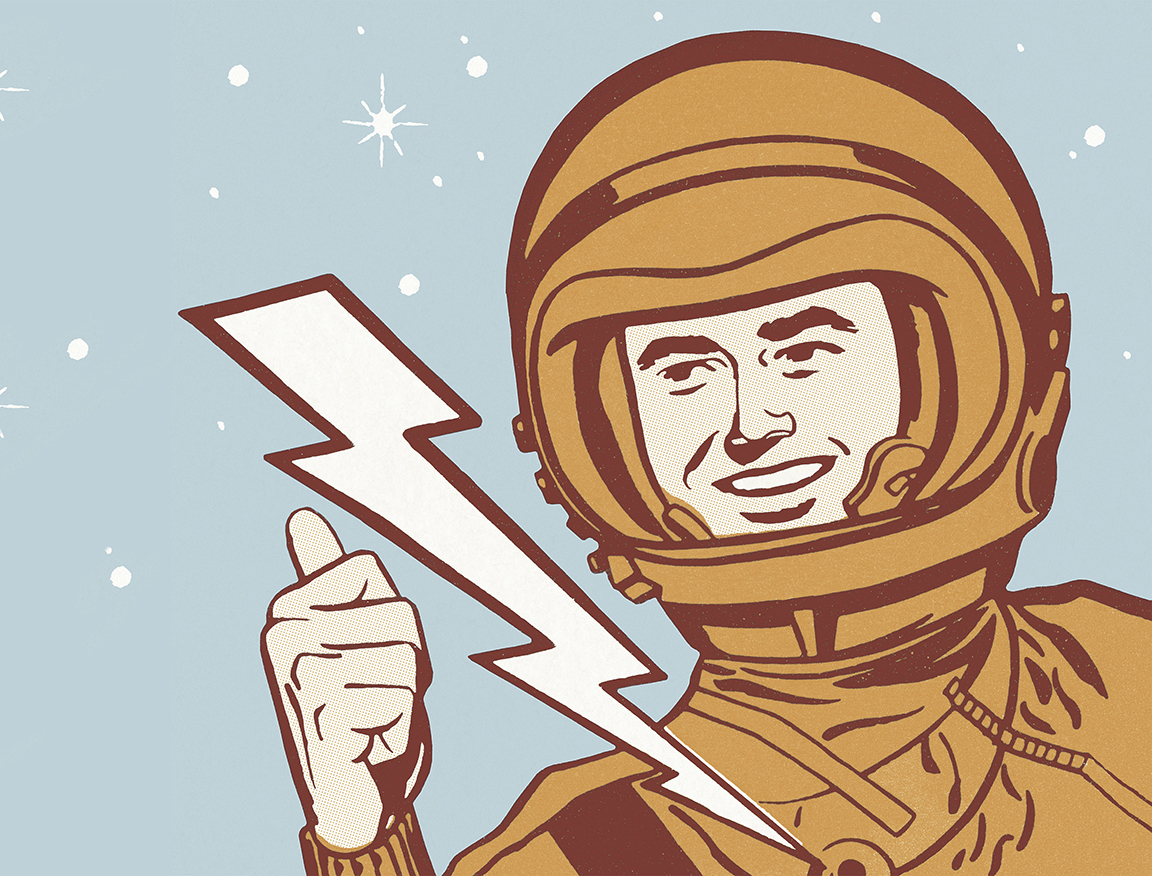We Thought the Future Would Be Cooler
April 15, 2016

Will automated drones, driverless cars, and intelligent robotics improve lives or destroy societies? That was the principal question fueling a touchscreen arcade game that Virginia Tech students created to encourage exploration of the long-term impact of automation.
“Rapid developments in automation technologies are expected to reshape cultures worldwide, with significant consequences,” says Andrew Kulak, a doctoral student in rhetoric and writing in the Department of English. “In designing the game, we wanted to spark conversation about the ideas and values behind those technologies.”
The arcade game was one of three scenarios on display at “We Thought the Future Would Be Cooler,” a Newman Library exhibition held in the spring of 2016. For the scenarios, students commandeered the university’s visioning initiative, Beyond Boundaries, to imagine the world in 2047. The project stemmed from Origins of Innovation, a graduate seminar that aimed to challenge beliefs about innovation.
In addition to the arcade game, the scenarios included a futuristic yet grim dorm room that served as a canvas of institutional change through the eyes of those most affected, and a futures card game that allowed middle schoolers, undergraduates, and graduate students to predict how people will interact with objects in 2047.
“Visions of the future are almost always wrong,” says Matthew Wisnioski, the associate professor in the Department of Science and Technology in Society who led the seminar. “We’re too optimistic or too gloomy. We assume current trends are lasting, or we overestimate disruption. And things get worse when we try to control the forces of change. We expect our innovations both to achieve our intended outcomes and be embraced. We wanted to explore those dynamics through a series of inventive scenarios.”
Written by Paula Byron







